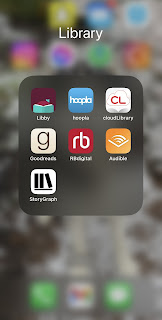ROGUE FAMILIAR has a cover!! I've been loving the enthusiasm for it, too. It's a great inspiration to me as I write Selly's hunt for Jadren.
This week at the SFF Seven we're talking tools for writers who aren’t beginners. I seem to be hearing a lot of interest in this topic lately. I've been contemplating setting up some online classes and not long ago I asked for input on what kinds of classes people would like to see from me. (Feel free to comment or message me if you have ideas or requests!) One of the suggestions that came up often was a desire for classes for more advanced writers, targeting those who’ve written several books but want to learn how to keep getting better at it.
So, I've been working up some lists of more advanced topics I could teach - and thinking back to where I learned the intermediate and higher stuff. Some of it is always going to be self-study. Reading other authors. Listening to other writers talk about their process. Re-reading favorites to study how those writers accomplished what they did. I think those are the best tools.
But I'd also like to see more craft-focused workshops, classes, and discussions out there. For quite a few years, it seems, the bulk of information offered to writers seems to focus on business. There are countless opportunities to learn Facebook ads, newsletter marketing, keywords, BookBub ads, Amazon ads, ad infinitum, ad nauseam. Why? Because those are easy to teach. Teaching craft is a much more daunting prospect. In fact, I've heard debates among creative-writing professors about whether the craft of writing can be taught at all.
At any rate, this isn't a very informative post, I know. I'm not offering any good tools here (other than the above), but rather food for thought. Improving craft is something we all (well, most of us) want to do. I'm thinking up some ways to get at it. Suggestions welcome!













